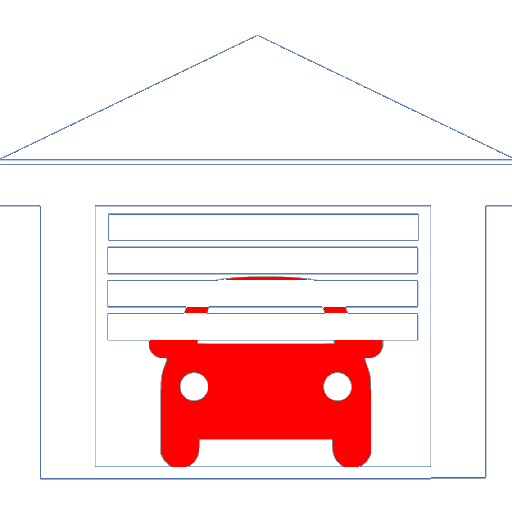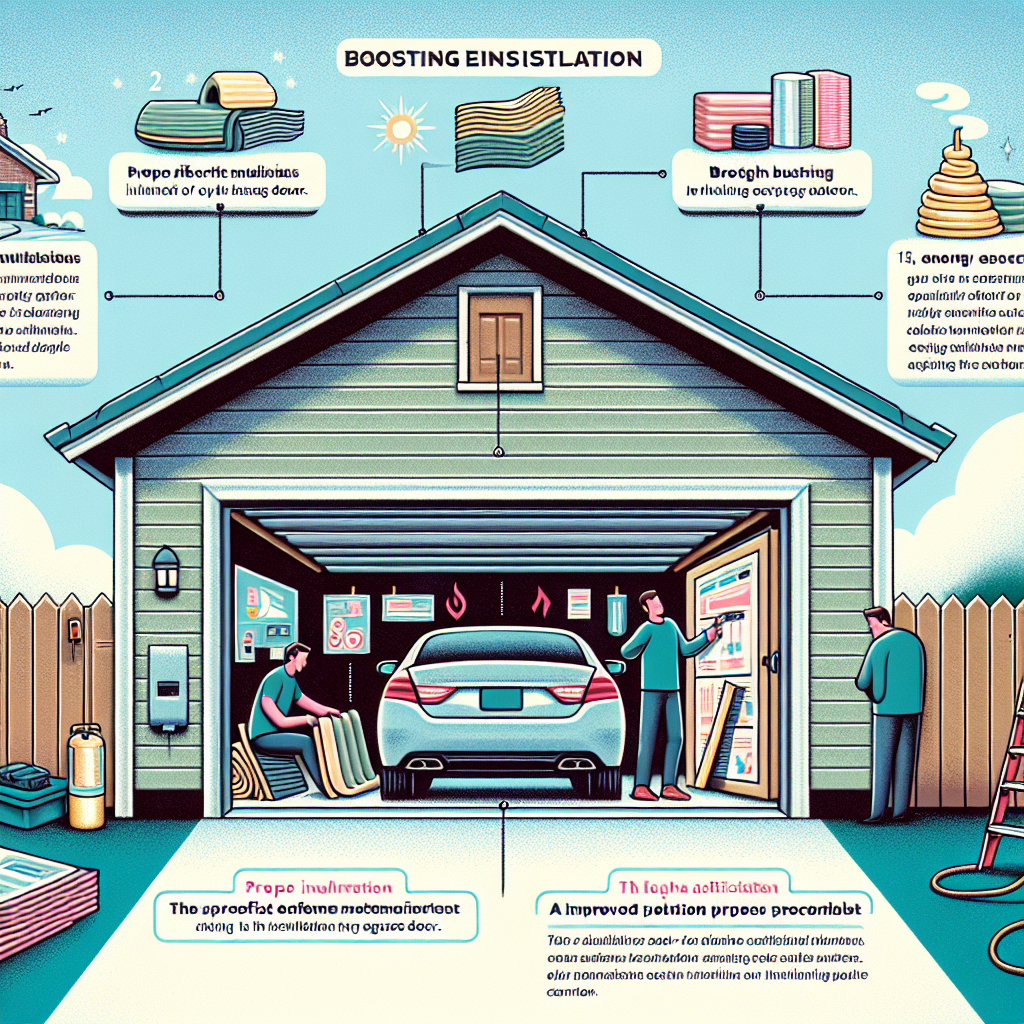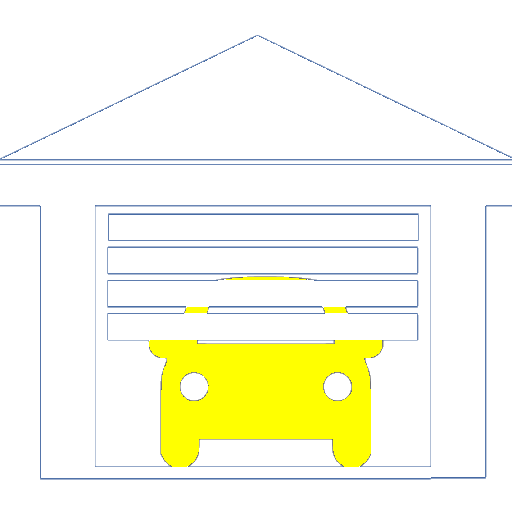“Unleash your potential with our innovative solutions.”
Take advantage of our 24/7 service by clicking here.
The Benefits of Garage Door Insulation in Houston
Garage door insulation is an essential aspect of maintaining a comfortable and energy-efficient home in Houston. With the extreme temperatures and high humidity levels that Houston experiences, having proper insulation for your garage door can provide numerous benefits. From reducing energy costs to increasing the lifespan of your garage door, insulation is a worthwhile investment.
One of the primary benefits of garage door insulation is its ability to regulate temperature. Houston’s scorching summers and chilly winters can make the temperature inside your garage unbearable. However, with insulation, you can create a barrier that prevents heat from entering during the summer and escaping during the winter. This not only keeps your garage at a more comfortable temperature but also helps to regulate the temperature inside your home.
In addition to temperature regulation, garage door insulation also helps to reduce energy costs. By preventing heat transfer, insulation reduces the need for your HVAC system to work harder to maintain a consistent temperature. This can lead to significant savings on your energy bills, especially during the hot summer months when air conditioning usage is at its peak. Insulation also helps to minimize drafts and air leaks, further improving energy efficiency.
Another advantage of garage door insulation is its ability to reduce noise. If you use your garage as a workshop, gym, or even just a place to relax, insulation can help create a quieter environment. It acts as a sound barrier, preventing outside noise from entering and reducing the noise generated inside the garage. This is particularly beneficial if you live in a noisy neighborhood or have neighbors in close proximity.
Furthermore, garage door insulation can increase the lifespan of your garage door. Houston’s climate can be harsh on garage doors, with extreme temperatures and humidity causing wear and tear. Insulation helps to protect the door from these elements, preventing warping, cracking, and other damage. By extending the lifespan of your garage door, insulation saves you money in the long run by reducing the need for repairs or replacement.
Additionally, garage door insulation can improve the overall value of your home. Potential buyers are increasingly looking for energy-efficient features when purchasing a property. By having a well-insulated garage door, you can attract buyers who appreciate the energy-saving benefits and are willing to pay a premium for a more efficient home. Insulation is a relatively low-cost upgrade that can have a significant impact on the perceived value of your property.
In conclusion, garage door insulation offers numerous benefits for homeowners in Houston. From temperature regulation and energy cost savings to noise reduction and increased lifespan, insulation is a worthwhile investment. It provides a more comfortable and energy-efficient environment, protects your garage door from damage, and can even increase the value of your home. If you haven’t already, consider insulating your garage door to enjoy these benefits and improve your overall living experience.
How Garage Door Insulation Can Improve Energy Efficiency in Houston

Garage door insulation may not be the first thing that comes to mind when thinking about energy efficiency in Houston, but it can actually have a significant impact on reducing energy consumption and lowering utility bills. In this article, we will explore how garage door insulation works and why it is important for homeowners in Houston to consider.
Houston is known for its hot and humid climate, which means that air conditioning is a necessity for most households. However, the hot Texas sun can also heat up the garage, making it difficult for the air conditioning system to keep up and maintain a comfortable temperature inside the house. This is where garage door insulation comes into play.
Insulating the garage door can help create a barrier between the outside heat and the interior of the garage. By preventing the hot air from entering the garage, the air conditioning system doesn’t have to work as hard to cool down the space. This not only improves energy efficiency but also extends the lifespan of the air conditioning unit, as it doesn’t have to run constantly to maintain a comfortable temperature.
In addition to keeping the heat out, garage door insulation also helps to keep the cold air in during the winter months. This is particularly important in Houston, where temperatures can drop significantly during the winter. By insulating the garage door, homeowners can prevent cold drafts from entering the garage and seeping into the house, reducing the need for heating and saving on energy costs.
Another benefit of garage door insulation is that it helps to reduce noise transmission. If you have a noisy street or live near a busy road, insulating the garage door can help to block out unwanted noise, creating a quieter and more peaceful living environment. This is especially beneficial for those who use their garage as a workshop or home office, where a quiet space is essential.
When it comes to choosing the right insulation for your garage door, there are a few options to consider. One popular choice is reflective foil insulation, which is made of a layer of foil sandwiched between two layers of polyethylene foam. This type of insulation is effective at reflecting heat and can be easily installed on the inside of the garage door.
Another option is foam board insulation, which is made of rigid foam panels that are cut to fit the garage door. Foam board insulation provides excellent thermal resistance and can help to reduce energy loss through the garage door. It is important to note that foam board insulation requires careful installation to ensure a proper fit and maximum effectiveness.
In conclusion, garage door insulation is a simple yet effective way to improve energy efficiency in Houston. By creating a barrier against heat and cold, it helps to reduce the workload on the air conditioning and heating systems, resulting in lower energy consumption and utility bills. Additionally, garage door insulation can provide a quieter living environment by reducing noise transmission. When considering garage door insulation, homeowners in Houston should explore options such as reflective foil insulation or foam board insulation to find the best solution for their needs.
Top Garage Door Insulation Options for Houston Homeowners
Top Garage Door Insulation Options for Houston Homeowners
When it comes to maintaining a comfortable temperature in your home, insulation is key. And while most homeowners focus on insulating their walls and windows, one area that often gets overlooked is the garage door. However, insulating your garage door can have a significant impact on the overall energy efficiency of your home, especially in a city like Houston where temperatures can soar during the summer months. In this article, we will explore the top garage door insulation options for Houston homeowners.
One of the most popular garage door insulation options is reflective foil insulation. This type of insulation is made up of a layer of foam insulation sandwiched between two layers of reflective foil. The foil reflects heat away from your garage, helping to keep it cool during the hot summer months. Reflective foil insulation is also relatively easy to install, making it a great option for homeowners who want to tackle the project themselves.
Another option to consider is polystyrene insulation. Polystyrene insulation is made up of rigid foam panels that are inserted into the garage door panels. This type of insulation provides excellent thermal resistance and can help to reduce noise transmission as well. Polystyrene insulation is also resistant to moisture, making it a good choice for humid climates like Houston.
If you’re looking for a more eco-friendly option, consider cellulose insulation. Cellulose insulation is made from recycled paper and treated with fire retardants. It is blown into the garage door panels, filling all the nooks and crannies and providing excellent thermal resistance. Cellulose insulation is not only environmentally friendly but also highly effective at reducing energy loss.
For homeowners who want the ultimate in insulation performance, polyurethane foam insulation is the way to go. Polyurethane foam insulation is sprayed onto the garage door panels, expanding to fill every crevice and creating a seamless barrier against heat transfer. This type of insulation has the highest R-value of any insulation material, meaning it provides the best thermal resistance. While polyurethane foam insulation is more expensive than other options, it can significantly reduce energy costs in the long run.
In addition to choosing the right insulation material, it’s also important to ensure that your garage door is properly sealed. Even the best insulation won’t be effective if there are gaps or cracks that allow air to leak in or out. Weatherstripping and sealing the edges of the garage door can help to prevent drafts and improve energy efficiency.
In conclusion, insulating your garage door is a smart investment for Houston homeowners looking to improve the energy efficiency of their homes. Reflective foil insulation, polystyrene insulation, cellulose insulation, and polyurethane foam insulation are all excellent options to consider. Each type of insulation has its own advantages and disadvantages, so it’s important to choose the one that best fits your needs and budget. Additionally, don’t forget to properly seal your garage door to maximize the benefits of insulation. By taking these steps, you can enjoy a more comfortable and energy-efficient home all year round.
Q&A
1. What is the capital of France?
Paris.
2. Who is the current President of the United States?
Joe Biden.
3. What is the largest ocean in the world?
Pacific Ocean.



